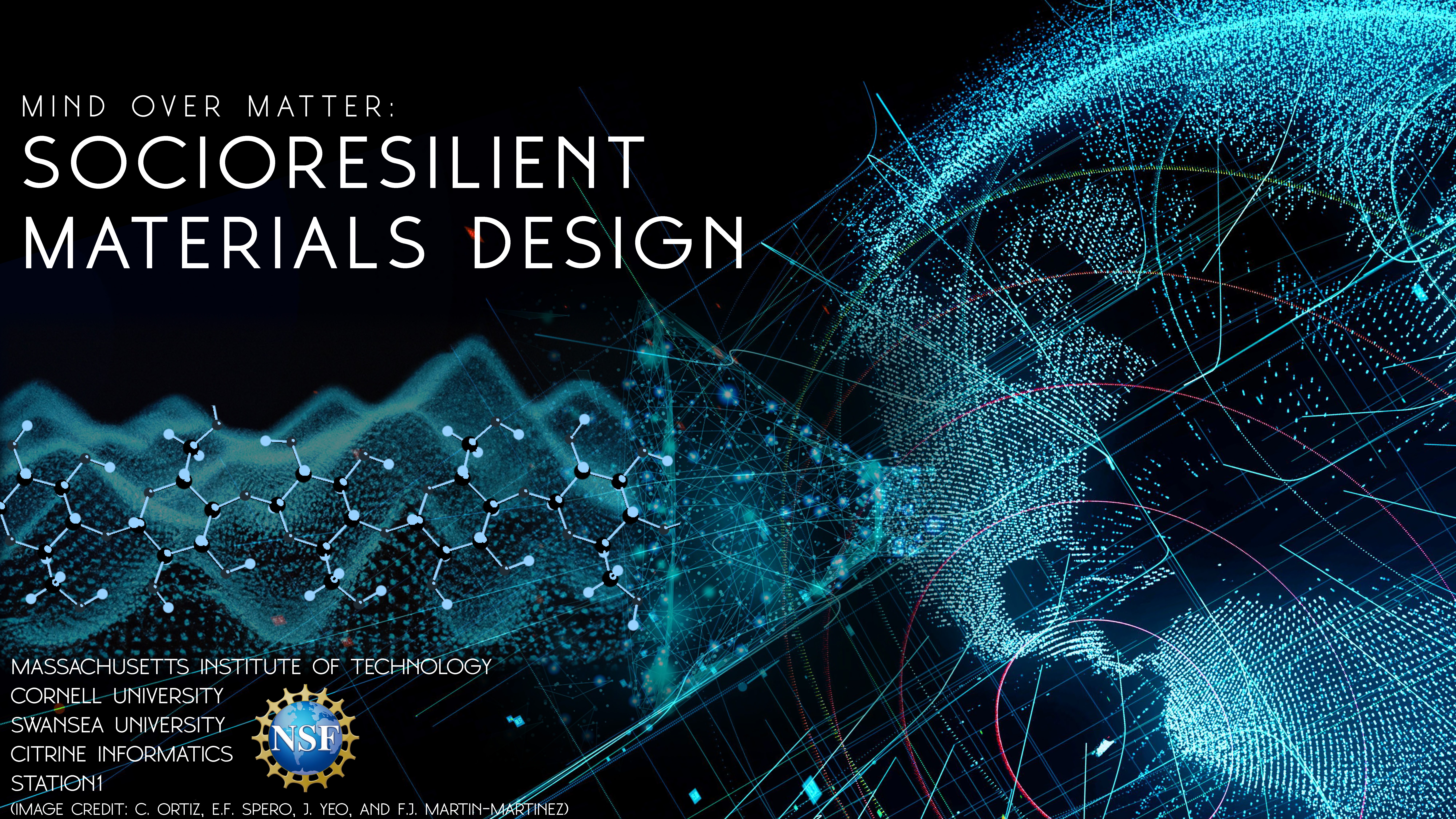
MIT AWARDED A NATIONAL SCIENCE FOUNDATION CONVERGENCE ACCELERATOR GRANT TO ADVANCE
SUSTAINABLE "SOCIORESILIENT" MATERIALS DESIGN
[MIT | March 14, 2023] - MIT researchers in the Department of Materials Science and Engineering (DMSE) at the Massachusetts Institute of Technology have been awarded a research grant by the National Science Foundation (NSF) in the multi-institutional research project: "Mind over Matter: Socioresilient Materials Design (SMD): A New Paradigm For Addressing Global Challenges in Sustainability." This $750,000 NSF Convergence Accelerator grant and part of the program's Phase 1, 2022 Cohort, Track I: Sustainable Materials for Global Challenges. Christine Ortiz, Morris Cohen Professor of Materials Science and Engineering and Ellan Spero PhD '14, Instructor in the Department of Materials Science and Engineering are leading this research effort which includes Cornell University (Sibley School of Mechanical and Aerospace Engineering), University of Swansea (Chemistry Department), Citrine Informatics, Inc., Station1, and 14 additional national and international collaborating organizations across sectors including academia, industry, venture capital, social sector, government, and philanthropy.
This research project is an innovative cross-sector and cross-disciplinary effort that aims to fundamentally rethink, re-shape, re-direct, and accelerate materials research and development towards more environmentally, socially, and economically sustainable and resilient materials-based products and materials-driven outcomes. The collaboration will engage leading researchers, scholars, and practitioners with expertise across disparate fields, including the sciences (i.e. chemistry, biology, physics, computer science), engineering (i.e. materials science and engineering, mechanical engineering, civil, structural, and environmental engineering), architecture and urban planning, and the humanistic and social sciences (i.e. history of science and technology, science and technology studies (STS)).
Increasingly, materials infrastructure and systems are faced with climate shocks which have created and amplified environmental damage and injustice issues. Classical materials design approaches as well as circular methods, focusing on solely technical properties, are often detached from root causes, are insufficient to address these challenges. The research project will create a next generation multidisciplinary framework for materials design through the integration of emergent computational capabilities, rigorous humanistic and social sciences methodologies, and nature-inspired principles. This project is critical for, and has great potential to advance environmental protection and resource conservation, social well-being and equity, economic prosperity and continuity, and infrastructure resiliency.
The MIT DMSE team, Ortiz and Spero, have a long-standing collaboration in both research and education across the technical and social dimensions of materials science and engineering (MSE) in areas such as materials for water infrastructure and systems, bio-inspired and biological materials, sustainable advanced manufacturing, and material culture. Their interdisciplinary research, which forms the basis for this grant, has been developed into DMSE curriculum including three modules in the undergraduate core DMSE class, Structure of Materials (3.010), and two semester-long elective courses, Materials Societal Impact and Social Innovation (3.087) and Social Life of Materials (3.088, formerly 3.S04), as well as involvement with diversity, equity and inclusion initiatives in DMSE. This project builds upon a previously funded NSF Convergence Accelerator grant and international convening "Socioresilient Infrastructure: Materials, Assemblages, and Systems" awarded to MIT in September of 2020.
About the NSF Convergence Accelerator
Launched in 2019, the NSF Convergence Accelerator builds upon research and discovery to accelerate use-inspired convergence research into practical application. This unique program, aligned to the Directorate for Technology, Innovation and Partnerships, funds a cohort of teams to work interactively toward solving grand societal challenges that impact thousands of people positively. As part of the recently launched 2022 cohort, the goals of Track I: Sustainable Materials for Global Challenges is to converge advances in fundamental materials science with materials design and manufacturing methods with the goal to couple their end-use and full life-cycle considerations for environmentally and economically sustainable materials and products that address global challenges.